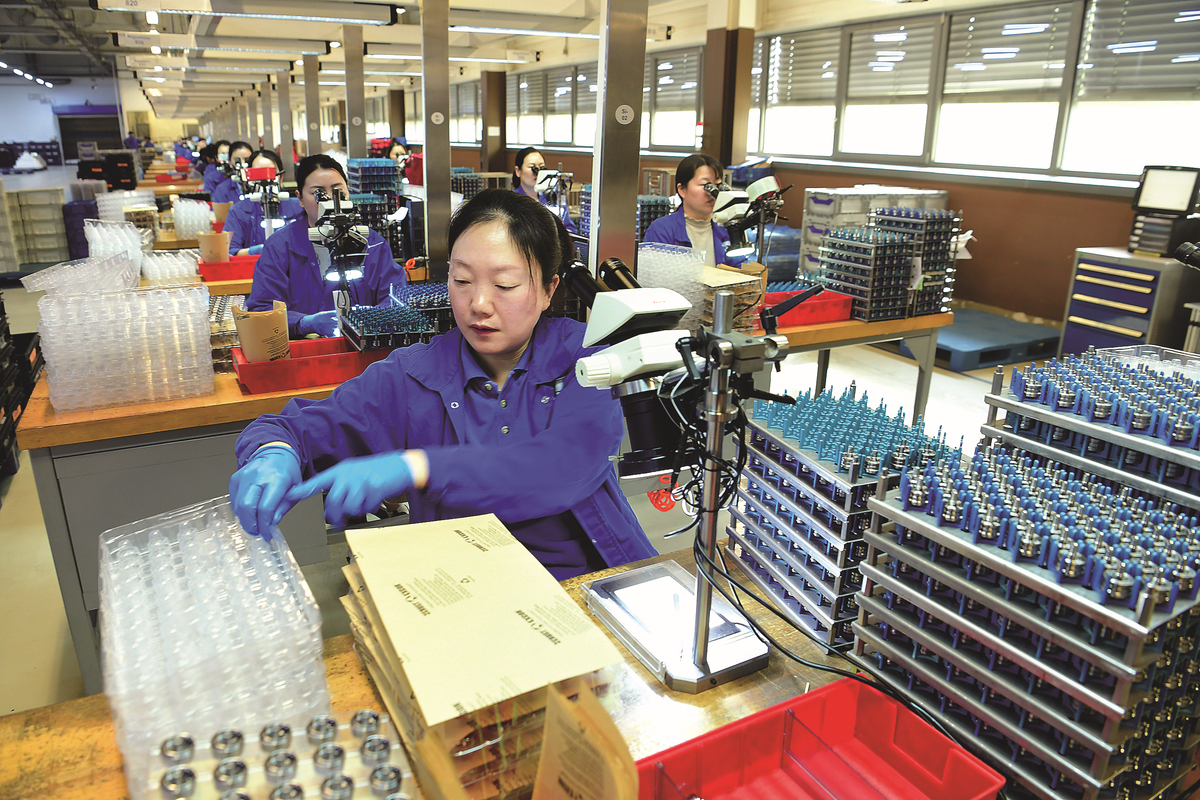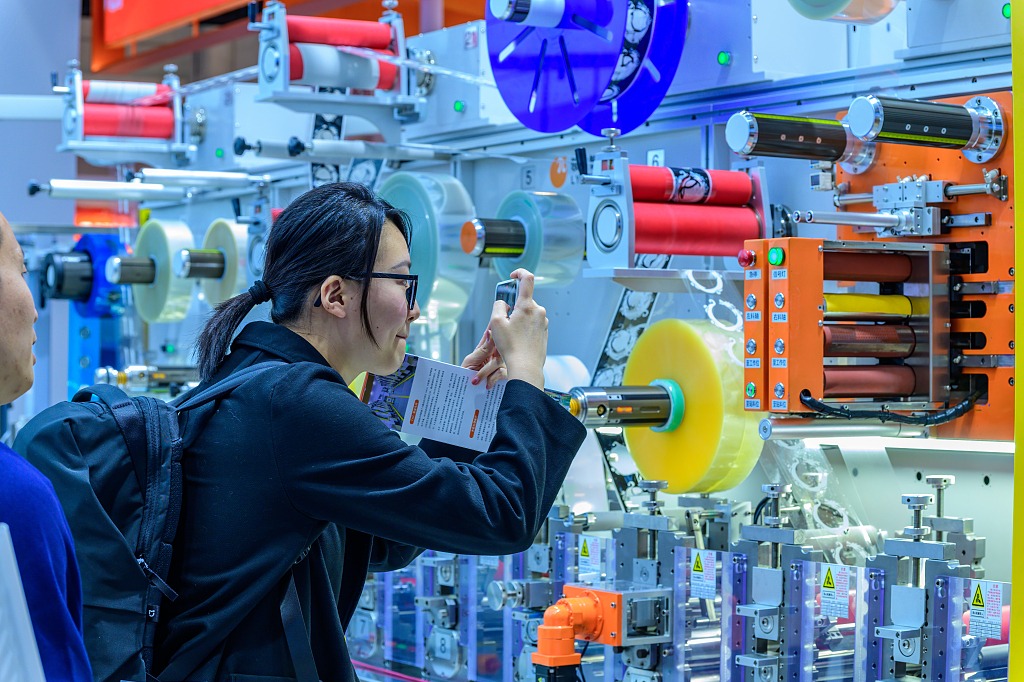German firms eye localization strategy


Amid growing competition and price pressure, German companies are increasingly adopting a localized strategy in China, operating with greater autonomy and aligning their operations with the mindset and practices of local businesses, a survey published by the German Chamber of Commerce in China revealed on Wednesday.
According to the chamber's 2024-2025 business confidence survey, about 40 percent of respondents reported operating more independently from their headquarters — marking a significant 12 percentage point increase from last year.
The survey, conducted between Sept 3 and Oct 8, gathered responses from 546 member companies of the chamber, which represents around 2,100 members across China, including Covestro, Mercedes-Benz Group, Siemens AG and SAP.
To maintain their competitive edge, more than 50 percent of German companies plan to increase investments in China within the next two years. Among these, 87 percent identified staying competitive as their primary motivation — an 8 percentage point increase from last year.
"By deepening localization strategies, German companies are addressing current market challenges and mitigating risks while positioning themselves to take advantage of the opportunities at hand," said Clas Neumann, chairperson of the board of the German Chamber of Commerce in East China.
When ranking business opportunities in China, the internationalization of Chinese companies stood out as the sole category experiencing growth compared to last year and the leading business opportunity, according to the chamber's study.
The survey further revealed that about 55 percent of German firms expect Chinese competitors to become innovation leaders in their industry within five years, with 8 percent indicating this is already the case. By comparison, only 5 percent of respondents held this view last year, while 46 percent expected such leadership within five years.
With the structure of foreign investment continuing to be optimized, China saw the high-tech manufacturing sector utilize 80.18 billion yuan ($11.03 billion) in foreign direct investment between January and October this year, accounting for 11.6 percent of the national total, statistics from the Ministry of Commerce showed.
In the meantime, German investment in China surged by 7.5 percent year-on-year.
As China fosters more favorable conditions to transform and modernize traditional industries while nurturing emerging sectors, executives from German corporations are confident about the substantial growth opportunities and greater commercial engagement in the world's second-largest economy.
Highlighting that Chinese consumers have a strong preference to embrace innovative products, Hubert de Haan, senior vice-president and chief sales and marketing officer for China at BSH Home Appliances Group — a German manufacturer with more than 10,000 employees in China — said his company fully embraces this market opportunity by focusing more on research and development in China.
"By adopting the localization approach in the next level, we can better meet the growing demand of Chinese consumers for increasingly advanced home appliances, laying a stronger foundation for our future growth," he said.
Anna An, president for China unit at Henkel Group, a German industrial and consumer goods company, expressed a similar view.
As China develops new quality productive forces, innovative technologies are driving the transformation toward digitization and green, low-carbon development, which have provided companies like Henkel with broader development opportunities, An said.
Henkel accelerated its local innovation pace in China in recent years. It has established an Asia-focused consumer goods research and development center and a South China electronics adhesive application center within the country.
The German company is currently building an adhesive innovation experience center in Shanghai, along with a new manufacturing facility in Shandong province.
Similarly reflecting its long-term confidence in the Chinese market, German carmaker BMW Group announced in April an additional investment of 20 billion yuan to expand its production base in Shenyang, Liaoning province.




































